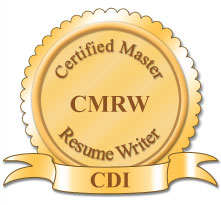As part of an ActionCOACH work day last month, we viewed an enlightening video on leadership mistakes put together by Harvard Business Publishing. Nine business leaders were asked what they considered the biggest mistake a leader can make. Their answers are very revealing.
The video was created in August 2010, and when I think back to the news about business and government leaders over the past seven years, I can line up those successes and failures to one or more of the insights below. I can also see where I personally am succeeding and where I can use some improvement.
Most of these leadership mistakes can be classified under the category of either hubris/arrogance or lack of integrity. I have summarized them for you here (Stylistic note: I chose to use the words and phraseology of each leader rather than be completely consistent with the structure of each answer. I hope you’ll forgive me this one time!)
Which of these leadership errors speaks most to you?
- Bill George, Harvard Business School
The biggest mistake you can make as a leader is to put your own self-interest in front of the interest of the organization you run. If you’re looking out for your own money, power, fame, and glory, that’s wrong. Leaders have a deep responsibility to all constituencies they represent – customers, employees, shareholders, etc. – to carry that responsibility out. Leadership is not about your own fame and glory. It’s a responsibility.
- Evan Wittenburg, Head of Global Leadership Development, Google, Inc.
Betraying trust. If you break that one, nothing else will matter.
- Ellen Langer, Professor, Harvard University
Being certain. When we confuse the stability of our mindset with the stability of the underlying phenomenon, we act as if we know. When you think you know, you don’t pay any attention any longer. Uncertainty should be the rule. Exploit the power in uncertainty.
- Andrew Pettigrew, Professor, Said Business School, University of Oxford
Not living up to their values. Leaders who espouse values but don’t deliver them are very often found out, and rapidly turned over.
- Gianpiero Petriglieri, Affiliate Professor of Organizational Behavior, INSEAD
Don’t be so overly enamored with your own vision that you lose capacity for self-doubt. Passion and purpose (positive traits) can sometimes turn into obsession. You become vulnerable if you lose the capacity to see consequences, to look at potential downfalls, other ways things can be, or voices you might be disenfranchising.
- Carl Sloane, Professor Emeritus, Harvard Business School
Personal arrogance/hubris. Confusing the size or success of the enterprise with the individual’s persona. That creates greater social distance and power distance, which is demotivating for most organizations and people, and which increases the chance of making big mistakes.
- Jonathan Doochin, Leadership Institute at Harvard College
Acting too fast. Executing before thinking through the issue. In corporate America and often government, you’re often drinking through a fire hose of issues, with little time to step back, evaluate, and reenter with vision. The best thing a leader can do is take a step back with their management team, seek advice, think it through, then move back to execution. This solves issues in the short term and is also good for long-term strategy.
- Scott Snook, Professor, Harvard Business School
As humans, we’ll accept almost any leadership style as long as it’s consistent. We will sniff out two things: 1) when it’s all about the leader. It has to be about something larger than yourself. 2) not being authentic, consistent, predictable, or in integrity. Our greatest fear is when we have to ask, “Which one (personality) is coming in today?” Like Jekyll and Hyde. As long as there’s consistency, and it’s about something greater than the leader, we’ll respect that leader.
- Daisy Wademan Dowling, Executive Director, Leadership Development at Morgan Stanley
Not being self-reflective. Not reviewing your own behavior, how to develop yourself, and how your behavior affects other people. You must be willing to hold a mirror to yourself and look at what effect your leadership is having on others. The worst leaders bulldoze forward, make mistakes and don’t look back, not learning as they go or being self-aware about how they’re affecting the people around them.
While there are many more blunders a leader can make, it seems all of them fall under one of the leadership mistakes identified above. For instance, making a company all about making money, and losing sight of the underlying values is a mistake. I believe it falls under #1, #6, and probably #9 as well. The tendency toward focusing on money over all else is a sign of getting caught up in a game that ultimately is not satisfying to win. Mistakes are bound to be made. Working too hard to please others is also a mistake; it falls under #4 and #8. If you’re not following your inner compass, you won’t be consistent or trustworthy in sticking to your own values.
The potential mistakes I want to focus on are consistency and following the values I espouse. Sometimes I am afraid I am being that Jekyll & Hyde personality. I write so much about leadership to remind myself how to stay in integrity with my own vision of how I want to lead. I don’t always succeed, but I always do #9 – self-reflection!
I’d love to hear your stories of your own leadership wins and failures, or how you see the leaders around you have succeeded or made mistakes in the areas above. Please share!











A fantastic piece that should be made into a poster for the office of every supervisor, manager, director, and all other leaders! Especially the self mirror and the consistency points.
Thank you, Andy. Timeless advice indeed!